
Celebrating the World Environment Day at the SDGs Academy for Children.
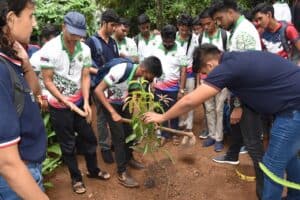
In commemoration of the World Environment Day, the SDGs Academy ‘Model Classroom’ organised a learning and tree planting session with 24 students from Maris Stella College Negombo, Sri Lanka.
The session, which in part took place within the Academy premises took the students through an understanding of SDGs 6 (Clean Water and Sanitation), 13 (Climate Action), 14 (Life Below Water) and 15 (Life on Land). The choice of these SDGs was informed by their close relation to the environment and the different ecosystems. Addressing these SDGs in particular, among other goals, will go a long way in preserving and enhancing the environment and the global climate scourge in general.
“The Model classroom is the classroom we are looking for in our school. A friendly space for us to learn, be innovative, and be ourselves with our fresh ideas. Thank you Arigatou International for creating that space for us to learn SDGs and be innovative in our own way” – Venuja, 15 years old boy from Sri Lanka.
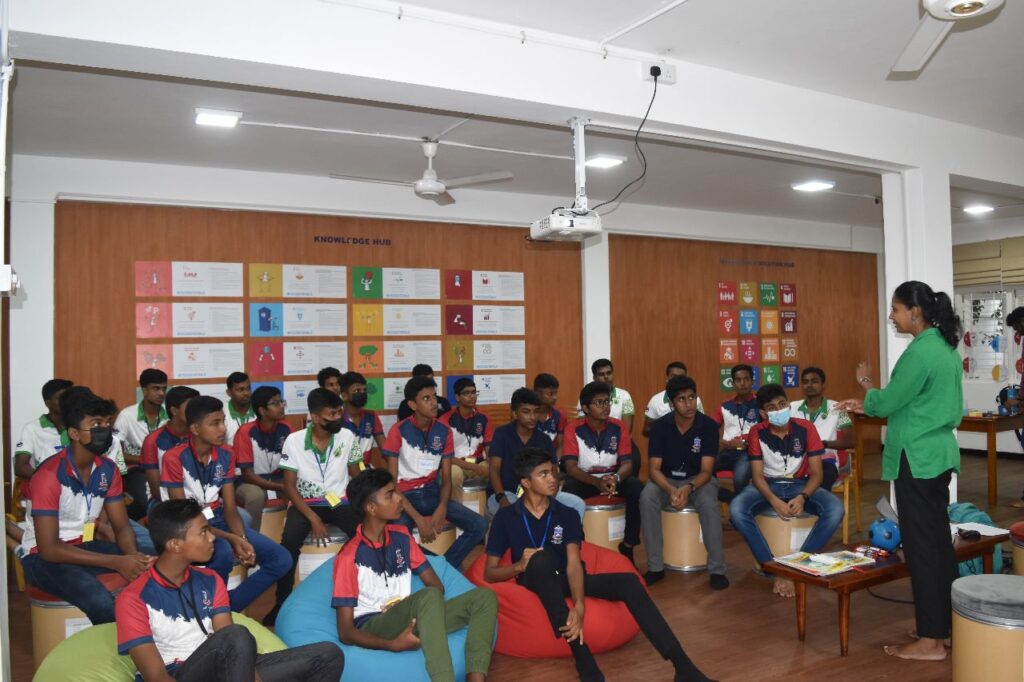
Discussions around these SDGs were linked to the Day’s theme: Solutions to Plastic Pollution – a call for global action to end plastic pollution. This was informed by worrying reports that each year, an estimated 11 million tonnes of plastic waste flows into the world’s oceans; this volume is expected to triple by 2040.
Discussions in the SDGs Academy for Children were followed by tree planting activities. The students and staff from the Academy/Sarvodaya Shramadana Movement planted mango trees signifying their commitment to conserve the environment and enhancing food production through fruits born out of the mango trees.
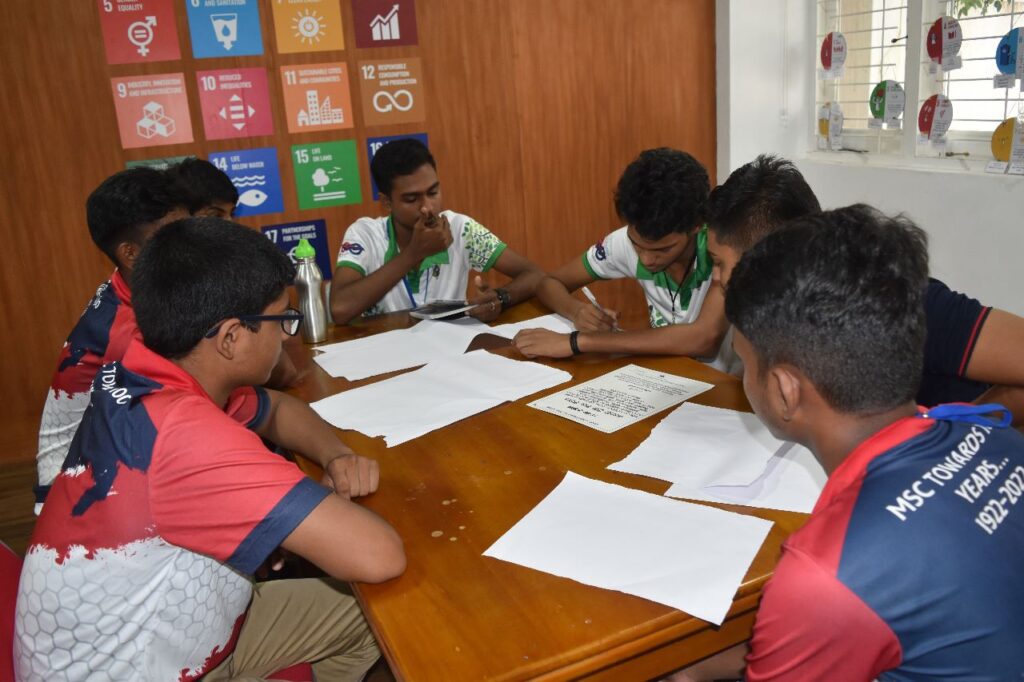
Further, the students pledged to take deliberate and continued action towards achieving the SDGs, after an exciting enlightenment about the global goals at the Academy. The Model Classroom aims to keep and advance such partnerships with institutions in order to raise more awareness about the SDGs and the need to involve young people in achieving the goals.
“This is not only a space or a learning course for children to learn about SDGs: This is something beyond that, where children could learn about their lives and change their way of living for a better world that we are dreaming of as adults. This is a place even adults could learn and contribute to a better world with children” Jude Preman, teacher, Maris Stella College, Negombo
Declared by the United Nations in 1972, the World Environment Day to highlight that the protection and health of the environment is a major issue, which affects the well-being of peoples and economic development throughout the world. The celebration of this day provides us with an opportunity to broaden the basis for an enlightened opinion and responsible conduct by individuals, enterprises and communities in conserving the environment.
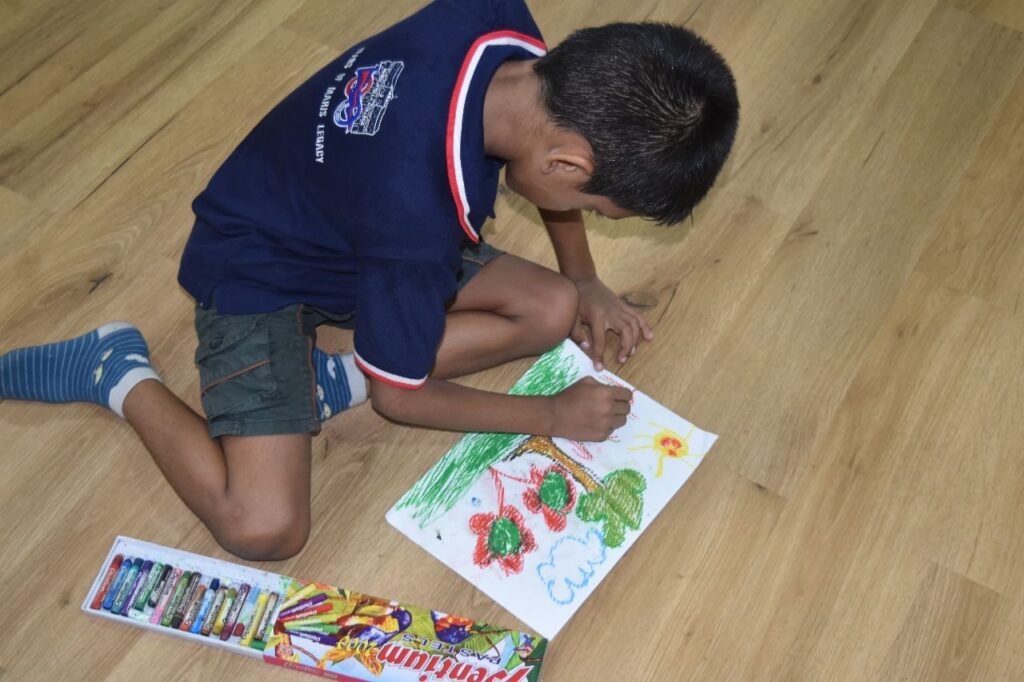
The post Celebrating the World Environment Day at the SDGs Academy for Children. appeared first on End Child Poverty.
The post Celebrating the World Environment Day at the SDGs Academy for Children. appeared first on Arigatou International.

What Is Religion?

Religion is the set of beliefs and practices that people use to help make sense of their lives. It often involves a belief in a supreme being or creator and may include prayers, rituals, teachings, rules of behavior, and social institutions like churches, synagogues, temples, mosques, and gurus. It can also refer to a specific group of believers, such as Christians or Muslims. It can also describe a belief in something that exists beyond the physical world, such as heaven or hell.
One major theory is that religion evolved out of human curiosity about life and death and fear of uncontrollable forces. It transformed this curiosity and fear into hope for a better afterlife and a purpose to living. This hope is believed to be a universal human need that is not met by science or other forms of spirituality.
Although there are many different religions in the world, most of them share similar characteristics, including a concept of salvation; a set of sacred places and objects; religious teachings; a belief that some acts or rituals are more important than others; a belief in a god or group of gods; a priesthood or clergy to lead followers; and codes of ethical behavior. Religious people also vary in how much their faith alters their thinking, behaviors and relationships. Some are ‘intrinsically religious,’ meaning their faith is at the core of their identity and they follow their religion strictly. Others are ‘extrinsically religious,’ meaning they do not adhere to their faith as a matter of principle but rather because it brings them benefits such as social status and respectability.
Scientists have found that people who are ‘intrinsically religious’ benefit most from religion. They are less likely to be depressed or anxious and have stronger ties to family and friends. They are also more likely to be altruistic and work for positive social change. However, there is a downside to religiosity: It can lead to depression, anxiety, substance abuse, and narcissism. It can also be a source of conflicting truth claims and irrational beliefs, such as creationism, homeopathy, and astrology.
Some critics have argued that the word “religion” is an invented category. These critics suggest that the modern semantic expansion of the term went hand in hand with European colonialism and that it should be abandoned as a category altogether. However, other scholars have argued that it is useful for classifying social formations and that it can be used to distinguish the world’s great religions from each other.
The concept of religion can be difficult to define, since it is a complex collection of cultural and psychological processes. Unlike the scientific method, which has clearly defined methods and aims, there is no such thing as a “religion test” that can be used to validate a particular faith or disprove it. Nonetheless, it is possible to analyze religious practices and belief systems to understand what they are doing to promote moral/ethical, social, and economic well-being.
The post What Is Religion? appeared first on www.snvla.org.

Learning the Basics of Poker

Poker is a card game that involves betting between players based on the value of their hand. Players can use chips, which are made of plastic or ceramic, to place bets and can be exchanged for cash at the end of the game. This is a form of gambling that requires skill and luck to win. If you’re interested in learning poker, you can begin by playing for fun at home with friends or family members. You can also find online poker sites where you can play for real money. However, you should only bet with money that you can afford to lose. This will help you learn the rules and strategies of poker without sacrificing your financial security.
One of the most important skills to learn is how to assess risks. Emotional and superstitious players almost always lose or struggle to remain even, while those who are able to take a step back and view the game in a more cold-hearted, mathematical, and logical way tend to win at a much higher rate. This is a skill that can be useful in the workplace, especially for managers and leaders who are responsible for making decisions about risky projects or strategies.
Another important skill in poker is learning how to read your opponents. A good player will be able to see the weakness of their opponent’s hands and use that information to their advantage. They’ll know when to bet and when to fold, and they’ll have a wide range of poker hands that they can use to beat their opponents. This is why so many commentators gush when they watch an elite poker player lay down a three-of-a-kind or low straight because they know their hand has been beaten.
Learning poker strategy is a process that takes time and practice. You can start by observing experienced players and thinking about how they would react in certain situations. Then, you can try out different poker strategies and see which ones work best for you. Keep in mind that you should never stop learning and keep improving your game.
You should also familiarize yourself with poker’s rules, like knowing which hands beat which, and the importance of position. Position refers to where you are in relation to other players at the table. A good player will be in late position (EP) most of the time, meaning that they’ll have a lot of chances to make a strong pre-flop hand by calling bets from their opponents who are in early position.
This will help them to make a big pot quickly and encourage competition in the pot. This will give them a huge advantage over their weaker opponents. The game of poker teaches you how to think fast, act quickly, and stay calm in stressful situations. All of these traits can be extremely useful in the workplace and in your personal life. In fact, they’re the key to being successful in any situation.
The post Learning the Basics of Poker appeared first on www.snvla.org.

The Ethics Education Fellowship Makes Strides in Bangladesh
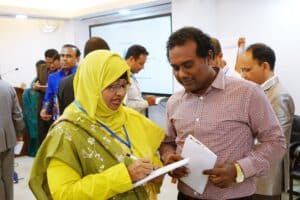

A group of 38 teachers from Bangladesh recently participated in a 5-day training workshop as part of the Ethics Education Fellowship program. The workshop aimed to equip these educators with the necessary skills to implement the program in 19 schools, benefiting approximately 1,200 children across the country.
The Ethics Education Fellowship program is a collaborative initiative between the governments of Bangladesh, Indonesia, Kenya, Mauritius, Nepal, and Seychelles. Its objective is to foster ethical values in children, promote global citizenship and build a more peaceful and inclusive society. The Directorate of Secondary and Higher Education – DSHE, under the Ministry of Education of Bangladesh, is responsible for coordinating the program in the country.
Program Launch in Bangladesh
On 22 January 2023, the Ethics Education Fellowship program was officially launched in the People’s Republic of Bangladesh. Dr. Dipu Moni, the Minister of Education of Bangladesh, participated in this occasion. In her keynote speech, Dr. Moni emphasized the crucial role of ethics education in transforming education, stating, “Ethics education is at the center of our planning. It is much more important to have ethics at the core of education than to focus solely on infrastructure, teacher training, books, and modern technologies.”
The launch ceremony also saw the participation of Mr. Mohibul Hassan Chowdhury, Deputy Minister; Mr. Suleman Khan, Secretary, Secondary and Higher Education Division, Ministry of Education; Prof. Nehal Ahmed, Director General, Directorate of Secondary and Higher Education; Ms. Susan Viz, Officer in Charge of UNESCO Bangladesh, representatives from partner organizations, as well as teachers and children.
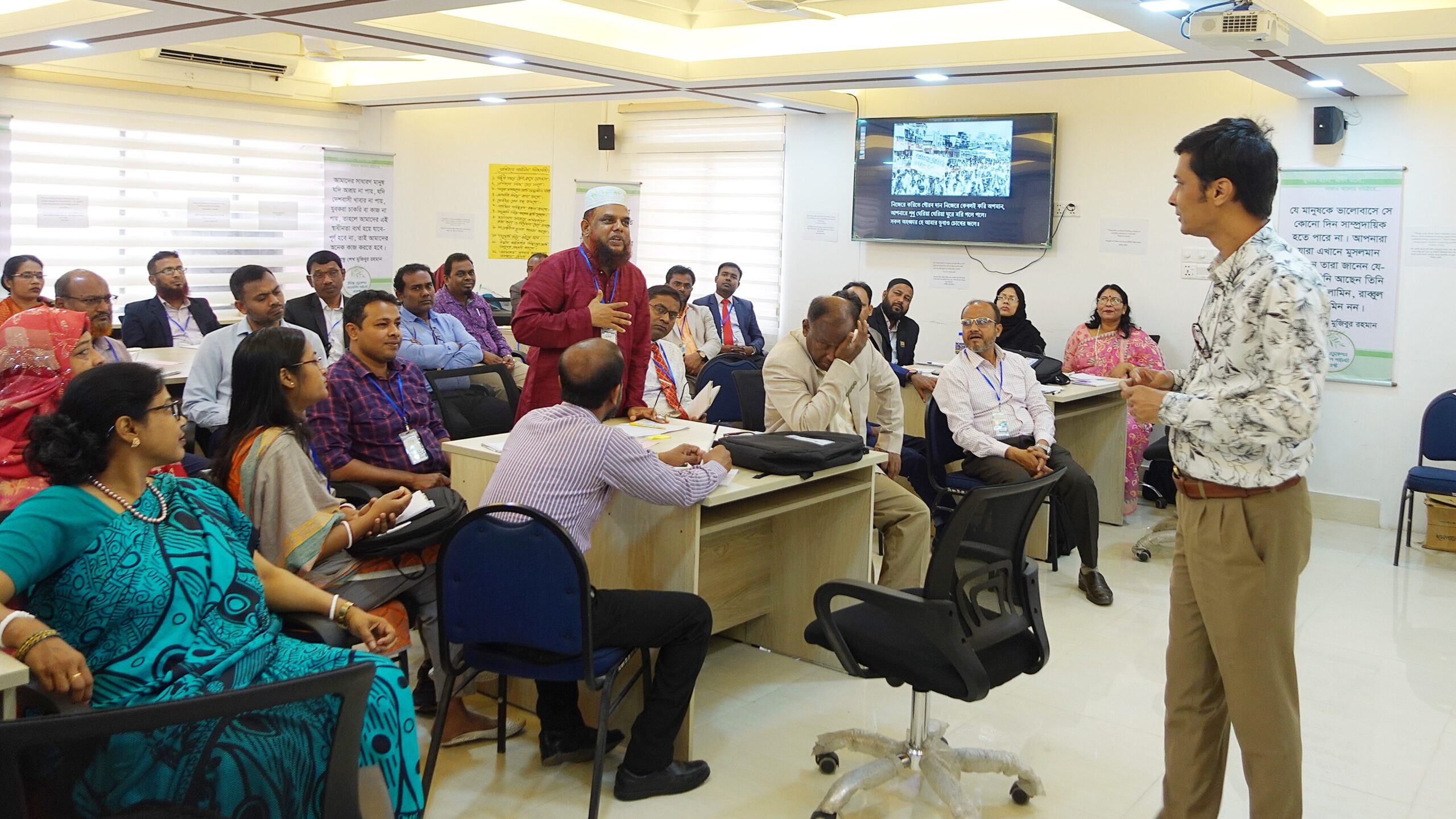
Training Workshop for Teachers
The training workshop for teachers took place from 22 to 26 February 2023. The local fellows, a group of five educators and ministry representatives, facilitated the workshop. The fellows play a pivotal role in leading the training, delivery, and advocacy efforts within the country.
Additionally, Ms. Eleonora Mura, Senior Expert on Monitoring, Evaluation, and Learning from Arigatou International, provided support and guidance to the fellows during the workshop.
The opening ceremony of the training workshop featured keynote speeches by Dr. Suleman Khan, Secretary for Secondary and Higher Education, and Mr. Md. Belayer Hossain Talukdar, Additional Secretary. They emphasized the importance of ethics education in fostering critical thinking, and positive relationships, and implementing Global Citizenship Education. They also highlighted how the ongoing curriculum reform in Bangladesh has integrated ethics as a vital component, which is being incorporated into grades 1 and 2, as well as 6 and 7.
During the workshop, participants explored the Ethics Education Conceptual Framework, centered around three pillars: Relationships, Ethical Reflection and Dialogue, and Collective Action. Ms. Amina Begum, Senior Teacher of Bengali at Biddamoye Govt. Girls School, shared her perspective, stating, “The concept of dialogue and a safe learning environment are very meaningful aspects that will help me prepare and implement ethics education with children.”
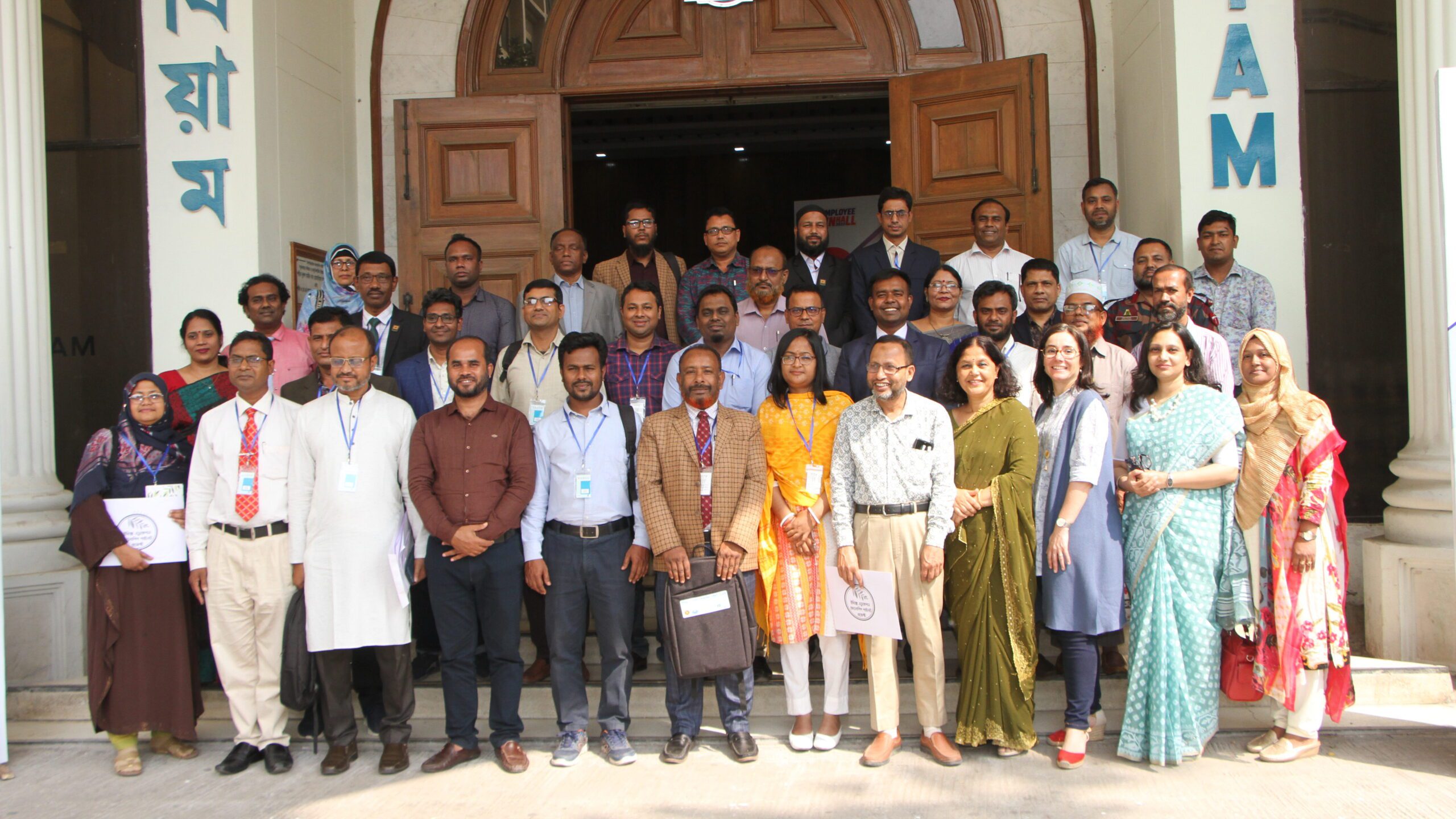
A Transformative Impact on Teachers
After completing the workshop, the trainees expressed how the transformative pedagogy approach presented in the program empowered them to critically question their assumptions and biases. They felt encouraged to examine the root causes of social injustices and take action to create a more just and equitable society. The teachers recognized their potential as powerful advocates for change within their schools and communities, driving improvements in education at all levels.
Mr. Joydip Dey, one of the program fellows, highlighted the significant benefits brought about by the program. He pointed out, “In our previous education system, there was a heavy emphasis on rote learning, resulting in students being fed pre-structured ideas. Unfortunately, this approach sometimes contributed to increased intolerance in society. However, with the introduction of the new curriculum, we are now prioritizing independent thinking among learners, which strongly aligns with the principles of ethics education. It is indeed a crucial time to implement ethics education in Bangladesh.” Mr. Dey is an Assistant Professor at the Government Teachers Training College in Dhaka and a member of the subject committee of the National Curriculum Framework.
The implementation of the program with children in schools began in March, yielding highly positive responses from teachers, with significant engagement observed among the participating children.
We extend our sincere appreciation to the dedicated fellows: Ms. Geetanjali Barua, Mr. S.M. Shafiul Alam, Mr. Zonayed Ahmed, Mr. Joydip Dey, and Dr. Syed Mizanur Rahman. We also thank all the individuals and organizations involved in the successful execution of the Ethics Education Fellowship program in Bangladesh, and the teachers for their commitment and enthusiasm.
The post The Ethics Education Fellowship Makes Strides in Bangladesh appeared first on Ethics Education for Children.
The post The Ethics Education Fellowship Makes Strides in Bangladesh appeared first on Arigatou International.

A Sustainable Apiculture Journey
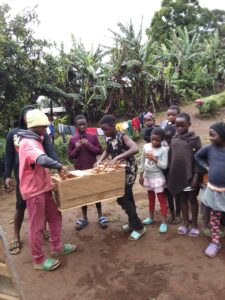
Harnessing the Bountiful Honey of Cameroon
Cameroon, often referred to as “Africa in miniature,” is a land blessed with natural beauty and abundant resources. Among its many treasures, lies the thriving apiculture sector, where traditional and adapted methods are harnessed to produce pure, natural, and high-quality honey. The unique geographical location of Cameroon, coupled with its diverse vegetation, spanning from lush forests to vast grasslands, provides bees with a diverse range of high-quality nectar sources, creating an ideal environment for beekeeping. This ensures that the honey produced in Cameroon is unparalleled in its taste and nutritional value.
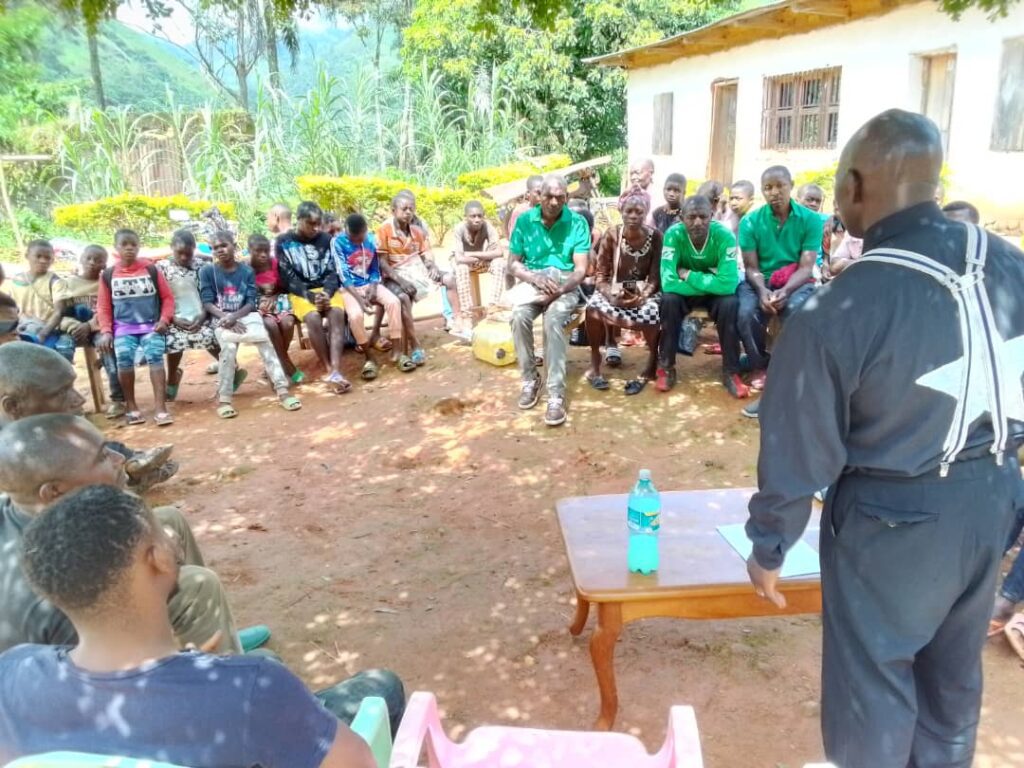
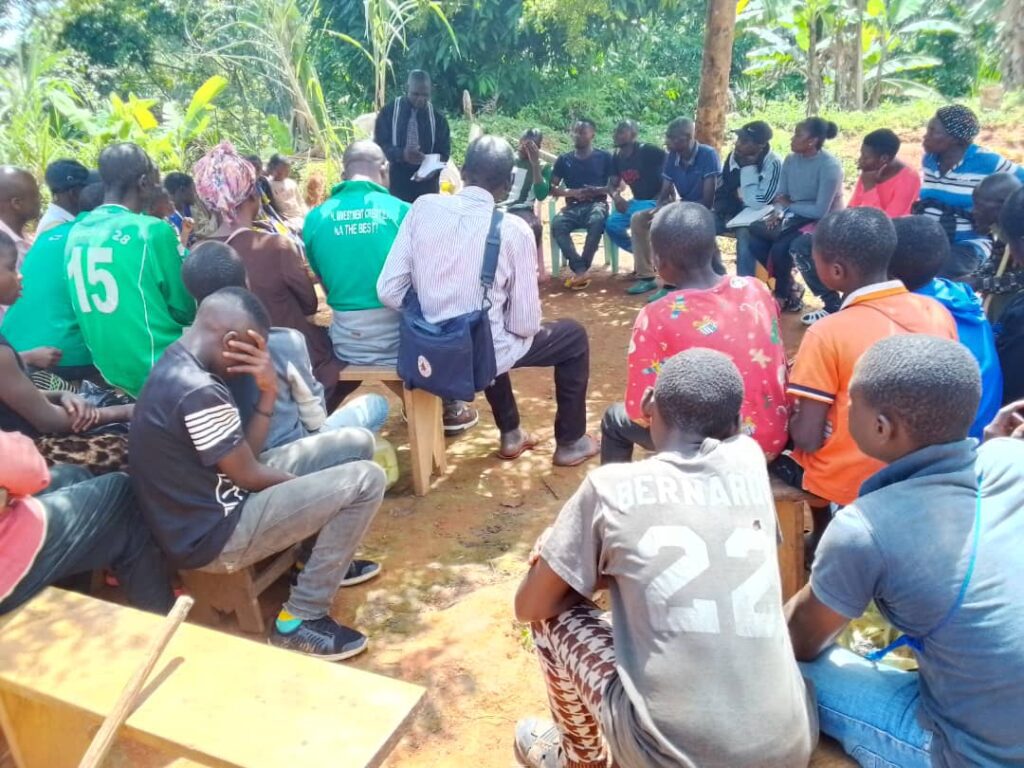
Recognizing the potential of the apiculture sector to drive sustainable development, GNRC Cameroon has taken the initiative to educate communities about beekeeping. In July 2022, they organized a forum in the marginalized villages, introducing the construction of beehives and emphasizing the economic and environmental benefits of beekeeping.
Building on this success, in June 2023, the GNRC members, led by their dedicated Coordinator, Mr. Alexander Gwanvalla, conducted similar workshops in different regions of Cameroon.
During the workshops, the GNRC members, some of them teachers, used the Learning to Live Together manual guide to instill values of cooperation and poverty alleviation in children. By combining beekeeping education with lessons on living harmoniously, these workshops fostered a sense of unity among the villagers. The approach by GNRC members in Cameroon not only equips communities with knowledge and skills for sustainable beekeeping but also cultivates a culture of empathy and mutual respect.
While the quest for sustainable apiculture continues to thrive in Cameroon, the journey is not without its fair share of challenges. One major obstacle faced by the GNRC members during their sensitization efforts was poor road infrastructure. Despite this hurdle, their determination and commitment to uplift these communities remained unwavering.
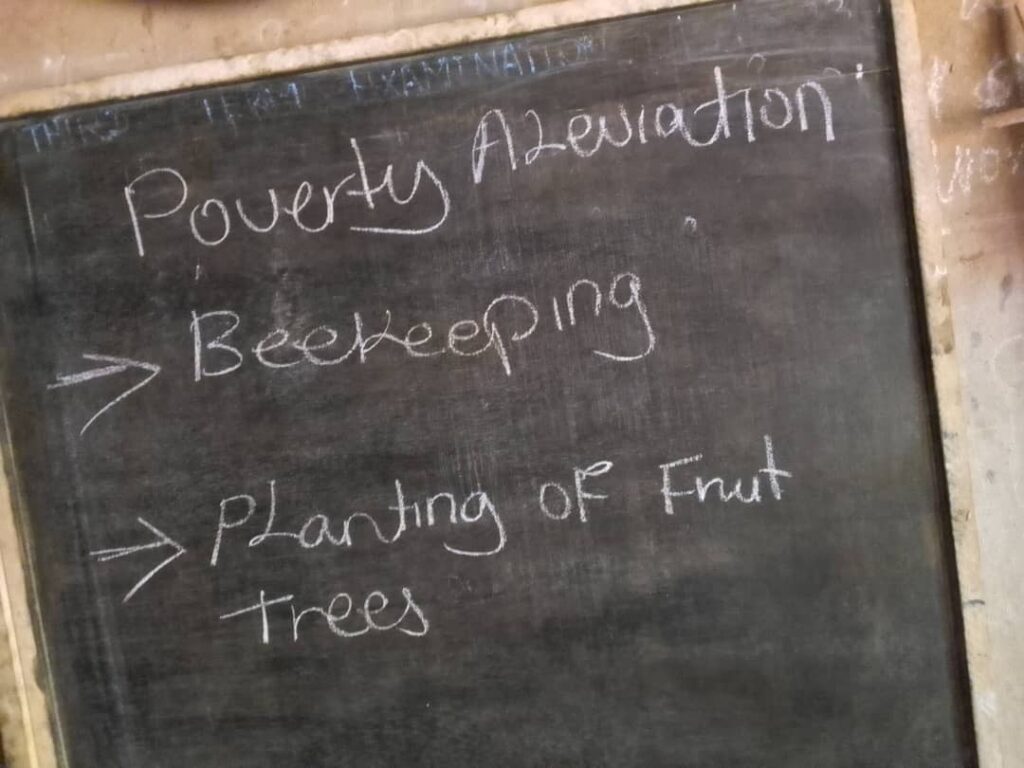
The post A Sustainable Apiculture Journey appeared first on Global Network of Religions for Children.
The post A Sustainable Apiculture Journey appeared first on Arigatou International.






